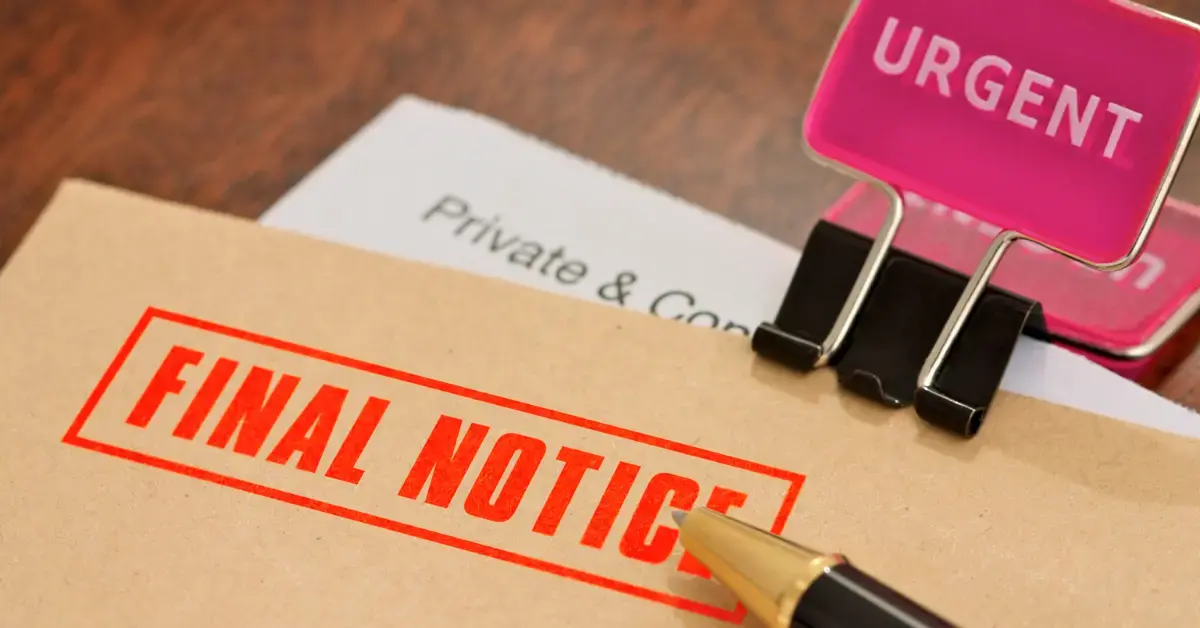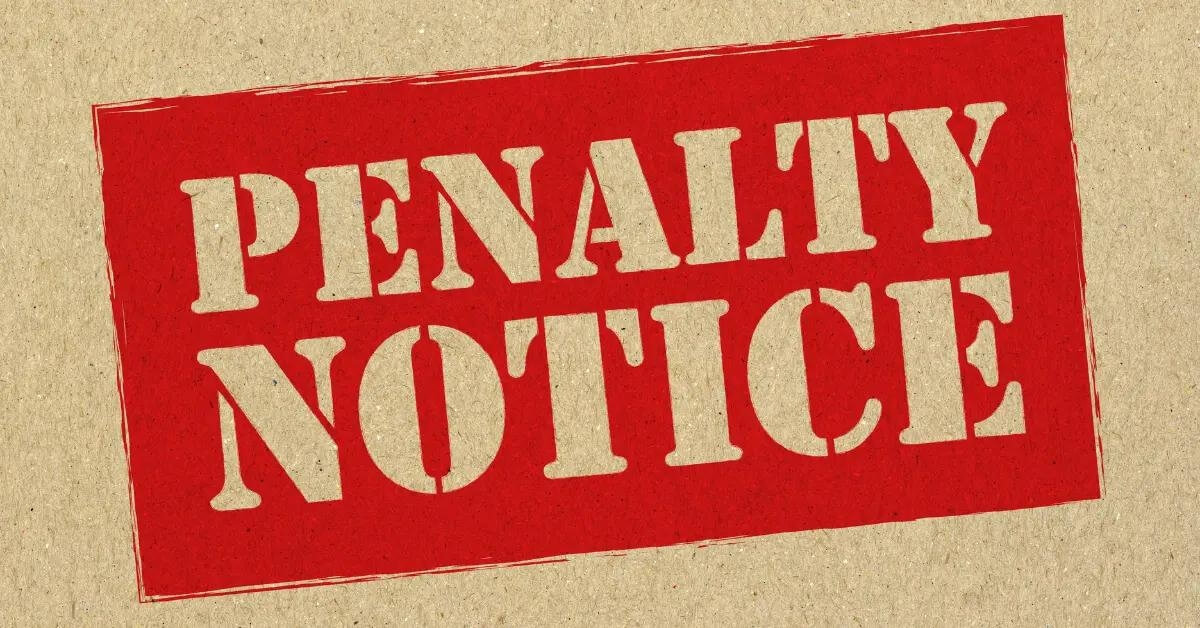Imagine opening your mailbox to find an IRS notice. Not just any notice, but the CP503 Notice. It’s their second reminder that you owe taxes.
The first one somehow slipped through the cracks of your busy life. Suddenly, this document is practically yelling at you to pay attention because time is running out. You might wonder why it’s so crucial not to ignore it or what steps you should immediately take upon receiving it.
Yes, the IRS sends these out by the thousands, but right now, in this moment, yours feels like the only one in existence. This blog will help you respond effectively to a CP503 Notice while easing your anxiety.
For personalized advice and strategies to handle your situation, consider reaching out to the tax consulting experts at Silver Tax Group.
Understanding CP503 Notice
Notice CP503 means that you have unpaid taxes, and ignoring those initial reminders has led us here. Think of it as being ghosted on text and then getting that follow-up call—it’s impossible to ignore.
You Can’t Afford to Ignore Notice CP503
I get it; seeing any letter from the IRS can be as welcoming as a root canal appointment. But here’s the deal—ignoring this notice could stir up more trouble than just setting aside time to deal with it now.
- If left unattended, things escalate quickly with the next steps potentially involving levies against your assets or even legal action.
- This isn’t just about what you owe anymore; additional penalties and interest charges are piling up too.
- Luckily for all parties involved, this notice outlines your payment options clearly. Whether agreeing doesn’t sit well with your current financial situation or not, responding is crucial.
Besides showing responsibility by addressing this issue head-on, you also open doors for potential resolutions like installment agreements or penalty abatement opportunities. So yeah – much better than letting sleeping dogs lie only for them to wake up feistier later on.
Immediate Steps To Take After Receiving a CP503 Notice
The first thing on your agenda? Make sure there isn’t a mistake. Yes, errors happen even in the world of taxes.
Look over that notice like it’s the menu at your favorite café—detail by detail. If something doesn’t add up or if you’re scratching your head thinking, “I already paid this,” then it’s time for action.
Contacting the IRS for Clarification
You might wonder, “Can I contact the IRS to discuss a CP503 notice?” Absolutely.
Grab that letter; there should be a phone number listed right on it. Reach out to them, sharing the details of your predicament.
“But what if I’m right and they’re wrong?” No worries. If they’ve got it wrong, they’ll fix it once they verify with your information.
In case everything checks out but paying off that balance feels like trying to climb Everest in flip-flops,
- Talk about payment options: Whether setting up an installment agreement or asking about penalty abatement fits better with where you’re at financially—they’ve got options available for discussion.
- Dive into details: Don’t hesitate to ask questions until every part of that notice makes sense—the way chocolate goes with peanut butter kind of sense.
Exploring Payment Solutions for Unpaid Taxes
An installment agreement is essentially the IRS letting you pay off your tax debt over time, instead of all at once. It’s like splitting up the check after a group dinner – much more manageable.
- The first step? Check if you’re eligible. Generally, as long as you owe $50,000 or less in combined taxes, penalties, and interest – you’re good to go.
- The second step? Apply online through the IRS website or by mail using Form 9465.
- Last, but not least, wait for approval while keeping an eye on incoming emails or emails from the IRS regarding your application status.
Opting for a Short-Term Payment Plan
Sometimes life throws us curveballs—like unexpected bills—and paying off that tax bill in full immediately just isn’t in the cards. Here’s where opting for a short-term payment plan can save your day…or rather months.
A short-term payment plan gives those who owe less than $100k (including everything: taxes + penalties + interest) up to 180 days to clear their dues without facing additional late fees apart from accumulating interest charges which are inevitable but bearable compared to other consequences of unpaid taxes. And yes, applying is easy peasy—you can do it right through an Online Payment Agreement Application.
In both scenarios—whether choosing monthly payments through an installment agreement or tackling what’s due within six months—it pays (literally) to take action sooner rather than later. The longer you wait, the more penalty charges stack up leading down into rabbit holes we’d all prefer avoiding.
The Consequences of Failing to Address Your CP503 Notice
First off, pretending that CP503 doesn’t exist won’t make your tax issues vanish. This notice means business. It’s essentially the IRS saying they’ve reached out before without any luck and now things are getting serious.
If you keep playing hide and seek with them, be prepared for some unwanted consequences such as:
- Add-on Penalties: Like salt on an open wound, additional penalties start piling up on top of what you already owe.
- Growing Interest: The balance due isn’t chilling in stasis; interest accrues making the hill you have to climb even steeper.
Collection Actions Commence
If those initial nudges don’t get your attention, this will surely do the trick – Think about waking up one day to find out:
- Your bank account has seen better days because now there’s a levy on it.
- A lien against your property makes selling or refinancing feel like a mission impossible.
All these actions can seriously derail not just your financial situation but also affect personal relationships and mental health. And trust me; explaining why there’s a tax lien on your credit report during dinner isn’t fun for anyone involved. Here’s more.
Taking Action Is Better Late Than Never.
- Contacting IRS ASAP—Yes, That phone number staring at you from the notice? Use it.
- Cut A Deal With Them—Options Galore, from payment plans to possibly settling for less than owed.
I know talking taxes feels as thrilling as watching paint dry but think about all this mess going away. Plus, a peace of mind knowing Uncle Sam isn’t after your assets anymore? Priceless.
How to Navigate Penalties and Interest Charges
The “penalty” part is essentially the IRS saying, “Hey, we noticed you missed paying us back there.” These penalties can stack up for each month your tax remains unpaid. And yes – they do bite into your wallet more than just a little nibble.
Seeking Penalty Abatement Opportunities
All hope is not lost if you find yourself facing these charges. There’s something called penalty abatement, which might just be your new best friend.
- Pick Up The Phone: You’ll see a number listed on that notice where you can get all Sherlock Holmes about it — ask for a detailed breakdown of those penalty charges.
- Making Your Case: If there were ever times life threw lemons at you (like natural disasters), causing financial turmoil and preventing payment – tell them. Valid reasons could have those penalties waived off like magic dust.
- Friendly Reminder: You’re human; mistakes happen. If this is your first slip-up with Uncle Sam regarding payments or filings — mention that too.
Sometimes things don’t go as planned financially but remember: taking action quickly is key here. Ignoring notices won’t make them disappear (sadly). But exploring avenues like penalty abatement could lighten that load significantly.
Tackling these issues head-on isn’t just brave; it’s smart financial management—proving yet again why being proactive pays off… literally.
Seeking Professional Help with Your Tax Issues
A tax professional isn’t just any knight in shining armor. They’re more like that friend who knows exactly what to say to get you out of trouble. Consider them as your navigator, skillfully steering you through the complex labyrinth of tax statutes and mandates.
- You’ve received an IRS notice CP503: This one’s pretty straightforward. The moment this lands in your mailbox, consider it a bat signal for help from a tax attorney.
- Your DIY tax filing looks like abstract art: If deciphering tax forms feels akin to reading ancient hieroglyphics, getting professional advice will save you countless headaches (and potentially money).
- The words ‘Tax Lien’ make an appearance: This is not something you want hanging over your head. A pro can help navigate these choppy waters before they turn into a storm.
- Late-night Google searches include “How do I talk to the IRS?”: This signals that things are serious; don’t go at it alone.
Sometimes we think asking for help shows weakness but think about this – would Batman roam Gotham without his utility belt? Not likely. Just like Batman wouldn’t patrol Gotham without his utility belt, trying to navigate the maze of tax problems alone could expose you to unnecessary risks.
Whether facing penalties or simply unsure how best to manage unpaid taxes, experienced professionals are ready to light up the path forward.
Strategies for Dealing with Tax Debt and Collection Efforts
Mastering the art of managing your tax obligations can be the difference between a peaceful night’s sleep and nightmarish encounters with tax collectors. Embarking on this journey, we’ll explore a few tactics that might just prevent your mailbox from being swamped with correspondence from the IRS.
- Stay Proactive: Yes, ignoring problems never makes them go away – especially when it comes to taxes. If you know you owe back taxes or suspect you might due to unfiled returns, take action immediately by reaching out for help.
- Contact the IRS: It sounds counterintuitive but talking directly to the agency can work in your favor. The IRS offers various payment options including installment agreements which allow you to pay off your balance over time.
- Negotiate an Offer in Compromise (OIC): In certain situations, you may be able to settle your tax debt for less than what’s owed through an OIC. This requires proving financial hardship but if successful, can significantly reduce your burden.
- Pursue Penalty Abatement: Sometimes penalties contribute significantly towards a ballooning tax bill. If factors like illness or misinformation led to missed payments or filings; requesting penalty abatement could lighten that load.
All said though – sometimes we need backup and seeking advice from a knowledgeable tax professional, such as a CPA or tax attorney who specializes in dealing with back taxes and negotiating with the IRS could save more than just money; they provide peace of mind too.
Preventing tax liens and other fun stuff from happening isn’t impossible. With proactive measures plus maybe getting expert assistance along the way – navigating through stormy seas of tax debt becomes much more doable. And hey – remember: You’re not alone here.
Utilizing Online Tools and Resources from the IRS
Let’s face it, dealing with taxes can feel like trying to solve a Rubik’s Cube blindfolded. But what if I told you the IRS has some tricks up its sleeve that could make your life easier? Yep, we’re talking about their online account services.
Your IRS Online Account
You might be wondering, “What’s this online account all about?” Well, imagine having a personal assistant from the IRS at your beck and call. That’s pretty much what an online account is like.
- Check Your Balance: Find out how much you owe in real time without waiting on hold for hours.
- Tax Records at Your Fingertips: Access those crucial tax documents anytime you need them.
- Paying Made Easy: Forget writing checks or scrambling for stamps; pay directly through your bank account or even with a credit card.
- Straightforward Plan Setup: If paying in one go feels like lifting Thor’s hammer, set up an installment agreement right there online.
We’ve all been there—wondering if our payment went through or if our latest return was received. With an online account, these mysteries vanish faster than socks in a laundry room.
The moment you click submit, you instantly know your payment or submission has landed safely. Peace of mind? Check.
Received a CP503 Notice? Contact Silver Tax Group
So, we’ve trekked through the thicket of understanding and responding to a CP503 Notice. This isn’t just any IRS reminder; it’s your financial wake-up call that refuses to hit snooze. We started with the shock value – that heart-stopping moment when you realize Uncle Sam is more persistent than a telemarketer.
Yet, amidst the shadows of fiscal anxiety, there glimmered a beacon of hope. You now know there’s a clear path forward. From verifying the notice’s accuracy to setting up payment plans or even seeking penalty abatement – options abound for tackling this beast head-on.
For more information or to work with highly experienced tax professionals, contact Silver Tax Group today!








